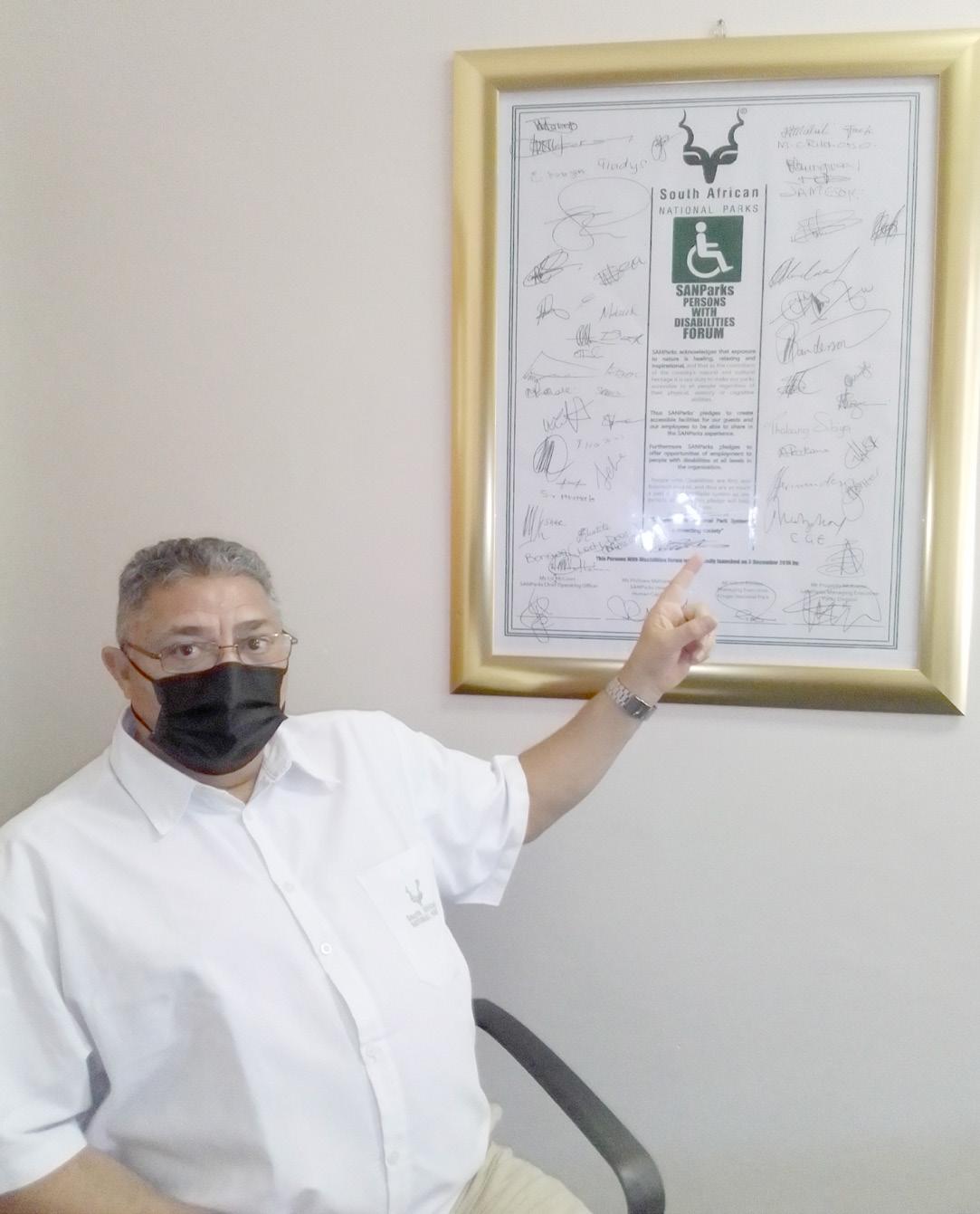
3 minute read
Vaccination in the workplace
By Sherlock Shabangu
Mr Sherlock Shabangu, giving the purpose of the day
Advertisement
Many organisations employ hundreds of employees who are required to be stationed in close proximity to each other in order to execute their work. Where the nature of the work is such that it cannot be performed remotely, and physical attendance at the workplace is an essential component of the job, keeping the workplace safe and mitigating the spread of COVID-19 and other infectious diseases becomes critical.
The right to freedom and security of a person is enshrined in section 12 of the Constitution. More specifically, section 12(2) provides that every person has the right to bodily and psychological integrity, to security in and control over their body. No person shall be denied the protection that section 12 offers. A plain reading of section 12(2) makes it evident that every person has the right to make decisions on health and medical interventions and treatment, which undoubtedly includes the acceptance or rejection of the vaccine. However, constitutional rights are never one dimensional and rights may be limited when there are justifiable grounds for doing so.
The Occupational Health and Safety Act of 1993 lays the basis for health and safety in any workplace. According to the Act employers have an obligation to take reasonable measures to ensure that the working environment is safe and without risk to the health of its employees. It is against this background that the latest Consolidated Direction provides a framework for mandatory vaccination in the workplace.
Although it may be true that by vaccinating enough people, herd immunity is created, there is no guarantee or certainty about the effectiveness of the vaccine, its long term effects on people, and whether social solidarity trumps individual or patient autonomy. It is still possible to contract COVID-19 after having received the vaccine.
On 11 June 2021, the employment and labour minister gazetted a directive on COVID-19
vaccination in certain workplaces, in the new consolidated direction on occupational health and safety measures. It stipulates that employers are required to come up with reasonable resolutions so that all parties are accommodated should employees refuse COVID-19 vaccinations on medical and Constitutional grounds. The principle taken by the directive is that employers and employees should treat each other with mutual respect. The directive, in section 3(1)(a) (ii), stipulates that employers must undertake a risk assessment to determine whether or not they intend to ‘make vaccination mandatory’. This should be in accordance with sections 8 and 9 of the Occupational Health and Safety Act No. 85 of 1993 (OHSA), and should take into account the operational requirements of the workplace. Employers are obliged to identify those employees who need to be vaccinated by ‘virtue of the risk of transmission through their work or their risk for severe COVID-19 disease or death due to their age or comorbidities’. Medical grounds for an employee not agreeing to take a vaccine as stated in annexure 3 of the directive are ‘an immediate allergic reaction of any severity to a previous dose or a known (diagnosed) allergy to a component of the COVID-19 vaccines’.
What if employees refuse to take the vaccine?
If an employee refuses to go for the vaccine, the employer must enter into consultations and educate the employees based on the reasons for refusing. The employer can also refer the employee for further medical evaluation, for example, where the employee has a medical reason for not taking the vaccine.
The employer must take steps to reasonably accommodate the employee in a position that does not require the employee to be vaccinated. This can include adjustments to the job or working environment in order to allow the employee who refuses to be vaccinated to remain in employment, for example, to consider the following:
• Working from home or workplace • Working in isolation (at the workplace) • Adjustment of an employee’s duties • Adjustment of an employee’s working hours or locations, or make other arrangements to ensure the health and safety of the employee.
In SANParks there are no directives on mandatory vaccinations, however employees are urged to disclose when they have been vaccinated on their own private capacity to the Occupational Health and Safety division: Itumeleng.Moagi@sanparks.org










